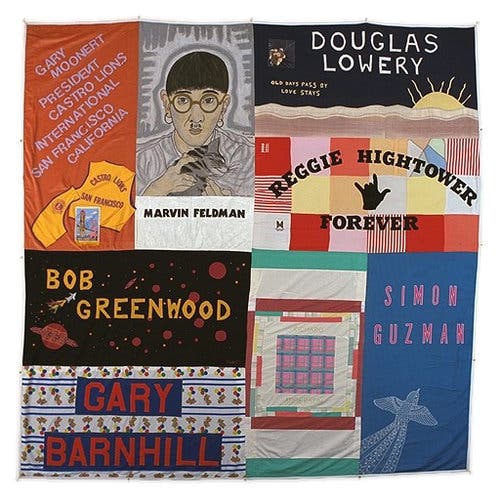The AIDS Memorial Quilt, a vast network of patches commemorating the lives of people who have succumbed to illnesses related to the disease, will return to San Francisco, where its first panels were created in 1987.
The quilt’s longtime steward, the NAMES Project Foundation, which is headquartered in Atlanta, will announce the move on Wednesday at a ceremony in Washington, which will be live-streamed at 11 a.m., where the House speaker, Nancy Pelosi, and other members of Congress are scheduled to attend. Next month, the quilt’s more than 50,000, 3-by-6-foot panels will move to the National AIDS Memorial in San Francisco, and its associated archive of 200,000 personal items and documentation will relocate to the American Folklife Center at the Library of Congress in 2020.
“This announcement honors the stewardship by the NAMES Project Foundation over the past three decades in passionately caring for the quilt and ensures its permanent home will continue to forever honor its history, the lives, struggles, despair, inequity and hope that it represents,” John Cunningham, executive director of the National AIDS Memorial, said in a statement.
At the height of the AIDS epidemic in the late ’80s, a group that included Cleve Jones, Mike Smith and Gert McMullin came together in San Francisco to create the quilt as a way to memorialize the names of loved ones who had died. Since then, the quilt has grown to include the names of more than 105,000 individuals and portions have been displayed worldwide, as well as on the Ellipse and the National Mall.
The National AIDS Memorial, which currently exists as a landscaped grove in Golden Gate Park, aims to incorporate the quilt in the physical Center for Social Conscience it plans to build. The Memorial and the NAMES Project Foundation will work together to provide programs associated with the quilt, like public education efforts, community displays and encouraging more people to create panels for those who have died of AIDS-related illnesses.

The Library of Congress will take ownership of the vast collection of biographical records associated with the names of those on the quilt, including photographs and news clippings, as well as documentation of the quilt’s creation. After the items are organized, the Library of Congress plans to make the archive available to researchers and the public.
“I feel very strongly that this is perhaps one of the most democratic memorials in existence because it’s literally made by the people for the people they love,” Julie Rhoad, the president and chief executive of the NAMES Project Foundation, said by phone. “The life of that person is on the quilt itself, but the survivors’ stories and the families’ stories are tied to the archives.”

